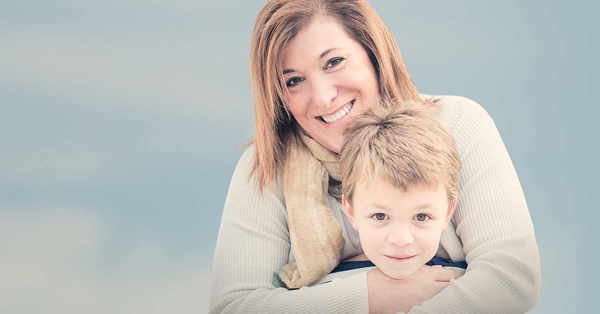
Not all that long ago, the list of things Jessica couldn’t do was lengthy. She couldn’t stand upright or breathe without struggle. She couldn’t pick up her children or go for walks with them. Some days, she couldn’t get out of bed because of the pain. Now, after spinal osteotomy surgery, the list of things she can do is essentially unlimited. She can ski, bike and go for two-mile treks. She was healthy enough to have a third child. She stands normally.
Though Jessica, who was physically active and had worked as a personal trainer, underwent spinal fusion surgery in 2008 to address the problems and pain caused by three herniated discs, she didn’t experience the relief she was hoping for. Instead, her spine fused in an improper position, pushing her torso forward. For her second surgery, Jessica chose the orthopedic spine surgery team at Washington University and Barnes-Jewish Hospital.
“My husband, my kids and my parents came with me to St. Louis,” says Jessica, who lives in Pittsburgh, Pa. “We reserved a big hotel room and set up camp for a month.” When she met with her surgeon just a few days before the procedure, he told her not to worry, and assured her that the team at Barnes-Jewish could fix her damaged spine. Those words gave Jessica the confidence to move forward.
Jessica’s surgery, called a spinal osteotomy, is essentially a reshaping of the spine. The Washington University Spinal deformity surgeons at Barnes-Jewish perform one of the highest volumes of these kinds of surgeries in the country and the world. That kind of experience means the surgeons become accustomed to the nuances of the procedure; as a result, they are more skilled and the outcomes for patients they treat are better. The team includes expert professionals: neurosurgeons and orthopedic surgeons who focus on collaboration and successful results.
The surgery, Jessica says, “gave me my life back.” Before her spinal osteotomy, she had days when she couldn’t do anything. After her surgery, Jessica says, “I do everything I need to do.”